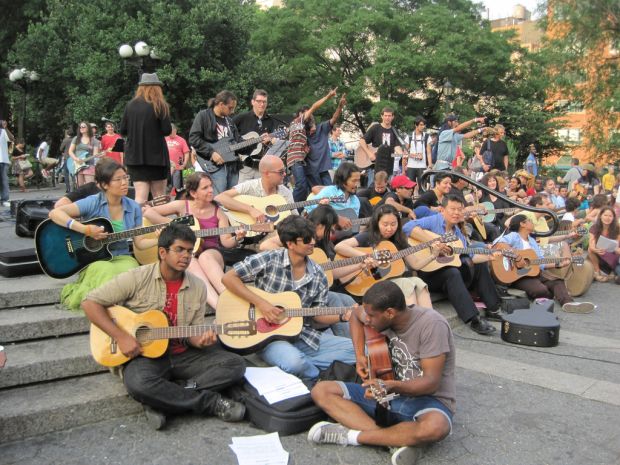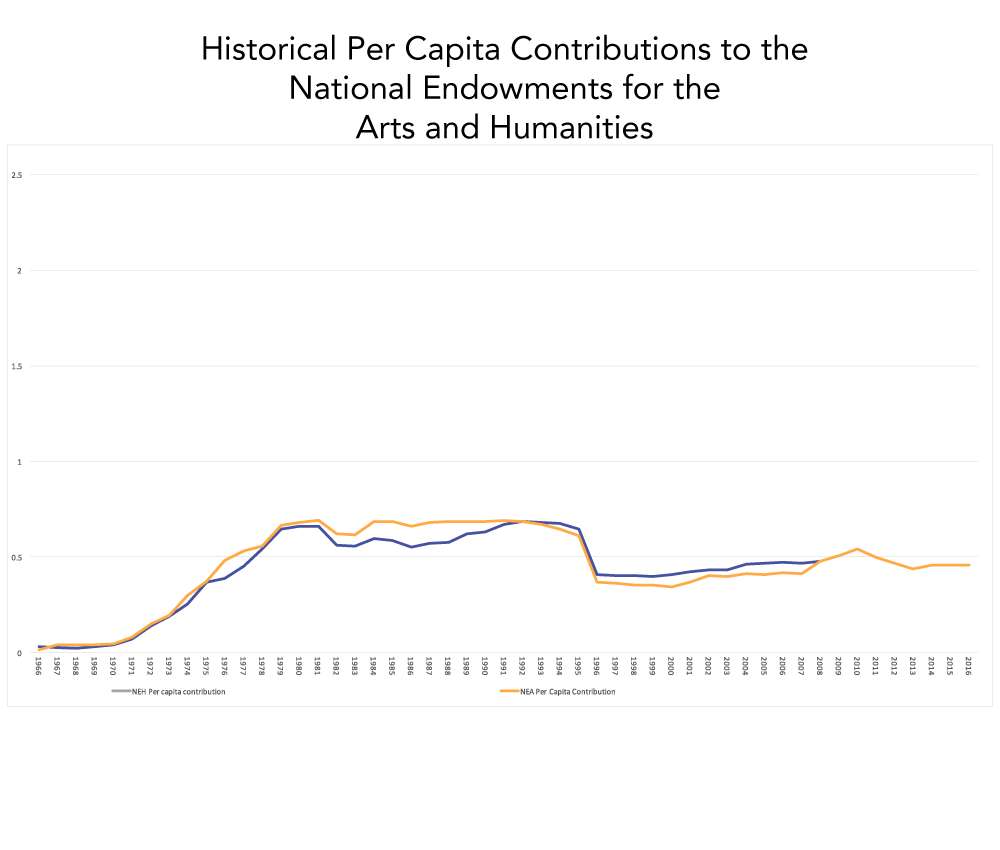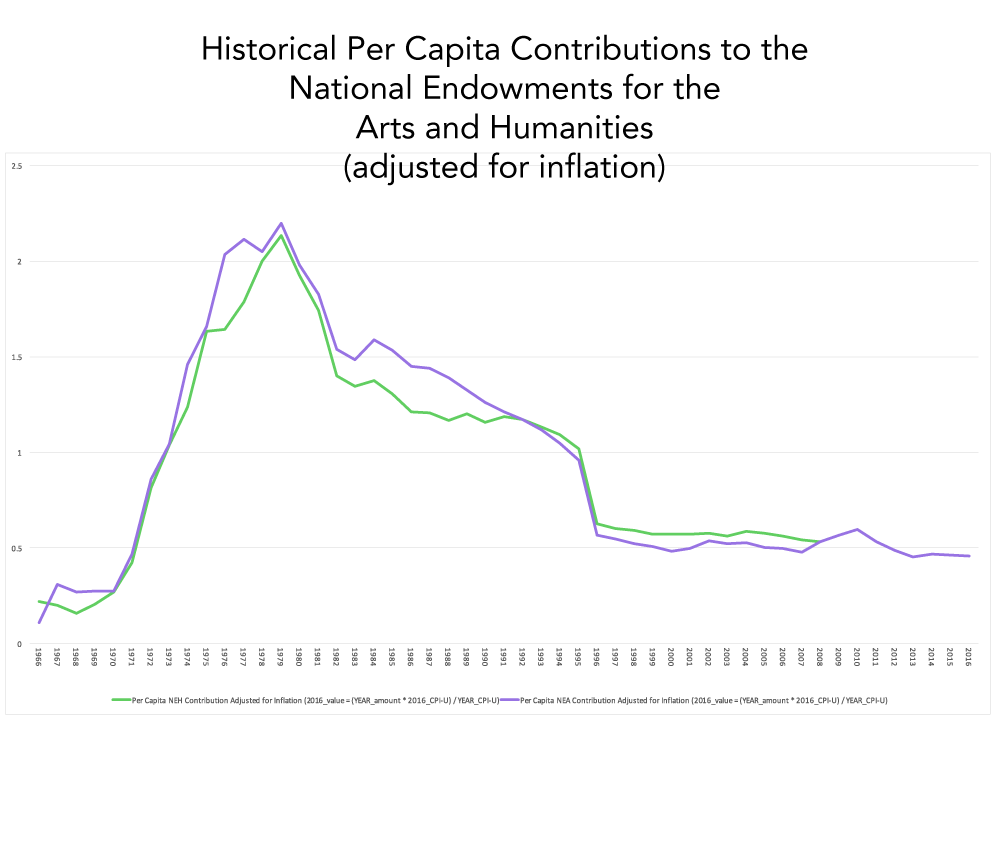How Much do the NEA and NEH Cost Us?
 We knew this was coming. A proposal for entirely dismantling the National Endowments for the Arts and Humanities.
We knew this was coming. A proposal for entirely dismantling the National Endowments for the Arts and Humanities.
Yesterday, the new administration released its preliminary budget proposal. This is the first time that a president has proposed gutting the agencies completely. The justification? A balanced budget.
But, we know that this isn't the full story. The NEH and NEA are a minuscule part of the overall budget. And, the savings that they offer will be counterbalanced by more military spending.
The NEH and NEA are on the chopping block because they represent free speech, free inquiry, free thought, and free expression -- pursuits that always threaten those who rule by fear, intimidation, and bigotry.
Snake oil politicians have long-caricatured the programs, artists, and scholars funded by these agencies -- cherry-picking projects with which they have objections -- overlooking the value that the NEH and NEA bring to communities throughout the country.
Let's not fool ourselves. This isn't about a balanced budget. The NEA and NEH are being targeted for ideological reasons.
***
Below, I consider what we spend per capita on the NEH and NEA. Of course, there are other ways to parse these numbers (e.g. not including children in the per capita figures and looking at taxpayers instead), but the story remains the same.
We each pay virtually nothing to support the NEA and NEH.
Given the size of their budgets and the impact that they have on the lives of Americans, the NEH and NEA are arguably two of the most efficient agencies in the U.S. government.
Let's have a look at raw numbers. When the NEA and NEH were established in 1965, they had very little financial support. But, the legislation that created them was clear:
It is necessary and appropriate for the Federal Government to complement, assist, and add to programs for the advancement of the humanities and the arts by local, State, regional, and private agencies and their organizations.
Within a few years, Congress increased the agencies' funding. The peak was in 1981 when budget appropriations gave the NEH 66 cents and the NEA 69 cents for every American. That was a little more than a penny per week.
Funding stagnated and then plummeted in 1994 with the new Congress. That year, per capita appropriation was 41 cents for the NEA and 37 cents for the NEH. This number dropped to a low of 40 cents for the NEA and 35 cents for the NEH in 1999.
Since then, funding has been bumped slightly. Last year, the NEH and NEA each had 46 cents in support for each American -- less than a penny per week.

The numbers become even more stark when we account for inflation.
Per capita funding for the arts and humanities in the United States is at its lowest funding levels since the early 1970s when the programs were still being built.
These numbers reveal a succession of Congresses that have put less and less value in the importance of the arts and humanities. Yet, despite their attempts to undermine the agencies, the NEH and NEA have continued to provide services for all Americans in all regions of the country.

***
When Congress founded the NEH and NEA in 1965, they did so because
An advanced civilization must not limit its efforts to science and technology alone, but must give full value and support to the other great branches of scholarly and cultural activity in order to achieve a better understanding of the past, a better analysis of the present, and a better view of the future.
The current administration has consistently shown that it is not interested in understanding the past or a fact-based analysis of the present. Its leaders have proven time and time again that the pursuit of knowledge, beauty, and ethics -- the driving questions of the arts and humanities -- are impediments to their pursuit of power and wealth. The principles of truth, rational inquiry, and self-reflection that are supported by the NEH and NEA are antithetical to this group's operations.
If we think that the arts and humanities are valuable -- and I think that most of us do -- it is essential that we call and write to our representatives to ask them to sustain these important agencies.
Click here to contact your representatives and express your strong support for continued funding for the NEA and NEH.
